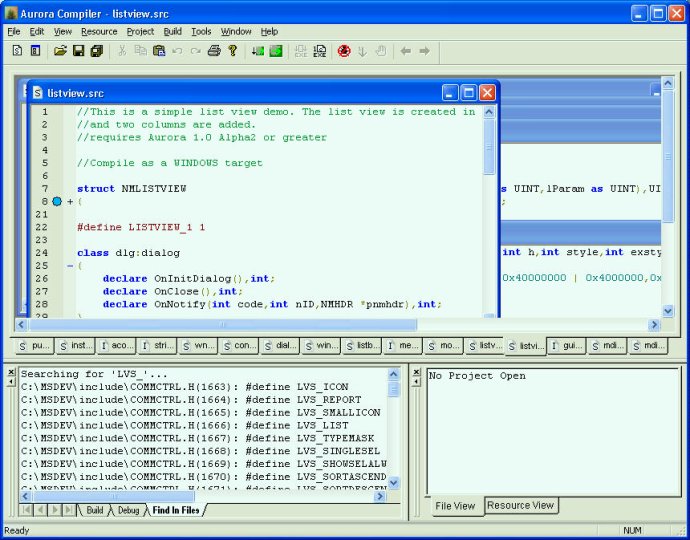Aurora is a robust 32-bit compiler with an integrated development environment, including advanced compiler, assembler, and linker. With a syntax similar to C/C++, it's suited for students and experienced developers due to its high-level commands.

One of Aurora's standout features is its ability to create standalone executables with no runtime libraries needed. Additionally, Aurora was designed to be a cross-platform compiler with both Windows and Linux versions available.
Aurora's current features include a fast 32-bit compiler, assembler, and linker that uses standard COFF and LIB format files for maximum compatibility. It also has add-on command libraries that make it easily upgradable.
The compiler's integrated editor, source-level debugger, and compiler make for a seamless programming experience. It also supports multi-module programming that supports unlimited source and include files.
Aurora interfaces seamlessly with Windows™ technologies, and it supports COM and OOP (class) support. The compiler supports Windows 95/98/ME/NT/2000/XP/Vista and intrinsic unicode support. Linux support is also in development.
The Aurora compiler has many built-in tools to support programming, including a built-in GUI/form designer, a menu designer, and a class designer. It also includes an integrated resource compiler and built-in classes for GUI, database, utility, 2D, and 3D game development. Additionally, Aurora has DirectX 9 support.
Overall, I highly recommend Aurora to any programmer looking for a reliable and powerful compiler. All tools can be run from the command line as well as the IDE, providing versatility for programmers who like to work in different ways.
Version 1.0-RC5: 64 bit changes, data alignment, assembler options.